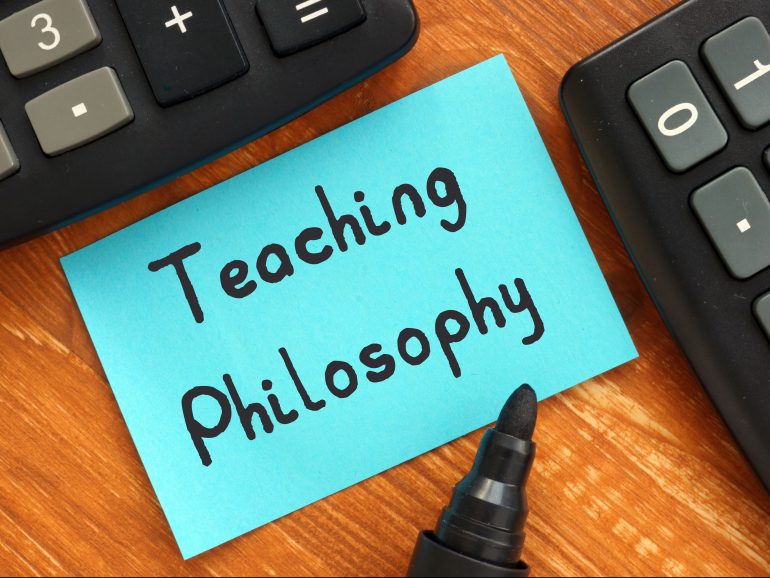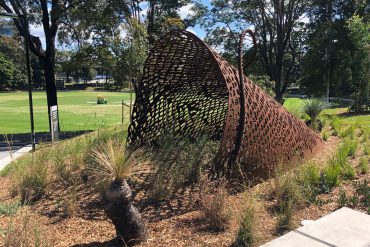The Faculty of Arts and Social Sciences held the inaugural Teaching Excellence Awards in November 2022. The awards are coordinated by Education Innovation and Design, and the recipients of the awards were decided by a panel of judges including some of the faculty Associate Deans. Dr Matthew Sussman from the discipline of English was awarded the Excellence in Teaching Award unanimously, as his application exemplified great consideration of his teaching philosophy. In the spirit of generosity and collegiality, I asked Matthew to share his insight and expertise on writing a teaching philosophy and the award application process.
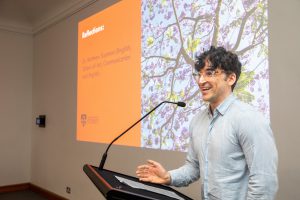
Leanne Stevenson: You developed a course on teaching philosophies. Can you tell me about that course?
Matthew Sussman: I was a fellow at the Derek Bok Center for Teaching and Learning at Harvard, which is dedicated to improving the teaching skills of faculty and students. One challenge that newly minted PhDs face is to prepare a teaching philosophy statement as part of a job application. Graduate students are not given many opportunities to think about pedagogy in a structured, scholarly way and come to teaching hoping they’ll figure it out on the job. There can be an assumption that you either know how to teach or you don’t, which is not at all how teaching works. You might have certain aptitudes or abilities that make you a certain kind of teacher,
But everybody can improve as a teacher through mentorship, practice, and study.
Leanne: Why is a teaching philosophy important?
Matthew: Everyone has a teaching philosophy, even if it is implicit. It is hard to go to the front of a classroom without some internal principle or a set of objectives about what you hope to accomplish there. When you reflect on your philosophy and articulate it back to yourself, you can become more focused in the strategies and activities you adopt to reach your objectives. You can also be more transparent with students about your own teaching approach. Being transparent is a way of welcoming students and getting them to consent to the environment that you are creating by being open about what you hope to accomplish; they understand where you are coming from, and the kind of experience that you are trying to create.
Leanne: Reading teaching philosophies is like marking essays, the good ones are all similar and the great ones are all unique but achieve the same standard of excellence. What are the constitutive elements of a great teaching philosophy?
Matthew: Teaching philosophy statements can become generic because all good teachers do the same kinds of things. All are passionate about the subject matter. We all model enthusiasm, try to be student-centered and provide detailed, personalised feedback.
But what makes you a unique teacher? That is what you need to think about most carefully. It’s likely something that you share in common with others, but which is particularly important to you. In fact, it might seem so obvious that you take it for granted.
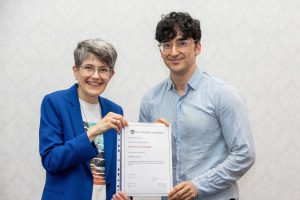
For example, I always thought fostering student autonomy was generic and universal. Everybody is trying to create critical thinkers and readers in their students. But I design my unit and teaching practices around the principle of autonomy more than someone else might. For them, the key goal might be to generate a feeling of inclusion or to model best practices in their discipline. These are important to me as well, but not my top priority. Finding your teaching philosophy is a matter of thinking about all the things you do in the classroom, many of which will be good things, and deciding which among them are most meaningful to you and most influence your learning and teaching design.
Another way you can figure out your philosophy is by thinking about transformative student experiences. When have students come to you and said, ‘this made a difference, this enlightens me, I’ve changed my view, I was scared and now I’m confident’? Any kind of student development or transformation is a wonderful way of prompting you to think about what took place that enabled that to happen. And what took place reflects your philosophy.
Leanne: How do you prepare a teaching philosophy?
Matthew: First, you might think about how you learned about teaching. Maybe you have a favourite teacher or have discussed teaching with mentors and colleagues. Maybe you’ve even read a bit about teaching in your discipline or the philosophy of education. Thinking about your influences is one effective way to get going. People who inspired you, teachers and texts that you loved, are probably shaping your practice today.
Then think about what you’re trying to achieve when you’re in front of the classroom. What are the principles that guide your behaviours? Some people think of themselves as modellers, some more as enablers; some see themselves as an expert and authority, others enter learning mode. You already have an approach, even if you’re not aware of it, and it’s no doubt influencing things like your unit design or the way you manage student participation.
Then try to get some distance from what you are doing and think about yourself as a different person. If you were observing your own classroom, how would you describe what you saw? And then think, what will a student walk away thinking and feeling, what kind of experience have they had? That is going to shed light on what your subconscious operational strategies are.
Leanne: You and I both did not receive awards the first time we applied, which is disappointing of course, so how did you use feedback to refine the application?
Matthew: There are certain institutional expectations about these applications, and you must know what they are when you apply. After not winning the award, I had a Zoom with the Associate Dean of Education, and she gave me extremely helpful feedback on my statement. She told me the award was less about my accomplishments as a teacher than about how my teaching influences students and colleagues. It was less a place to say, “Here’s what I do and why” than “Here’s how I know my practice is evidence-based and benefitting others.” The application asks for a much deeper dive into what it is to be a well-prepared teacher than simply reporting on your practice. So, I misunderstood the genre.
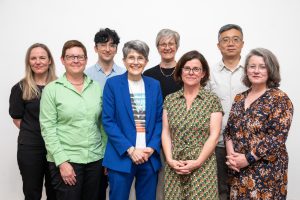
The FASS (Faculty of Arts and Social Sciences) award application is much like a teaching philosophy statement insofar as it’s an opportunity to be mindful and explicit about your guiding principles and practices while foregrounding student experience. Evidence such as USS (Unit of Study Survey) scores need to be contextualised. It is great to have evidence of consistently good USS scores, but you need to be able to articulate why those scores are the way they are. Integrating student feedback directly into the statement is an effective way of drawing tight connections between intentional teaching and student response. So are anecdotes or examples from your classroom, which is another way you can let your students’ voices shine through. When it comes to incorporating scholarship to support an award application, some people might think that’s a daunting task. But often insightful comments about teaching will come from scholars in your own discipline whose work you already know. In my opening paragraph I talked about what it’s like to teach during a ‘crisis in the humanities,’ which is a specific situation that does not apply to someone teaching, say, economics.
The statement is a way for your teaching personality to come through and the scholarship is relevant insofar as it has shaped that distinctive personality. It also demonstrates your awareness that teaching is something that can be examined through research, and hence a skill that you can spend a lifetime learning about and improving.
Want to know more?
For some practical support writing your own teaching philosophy statement, register for the MPLF 18 Career Building in 2023.

